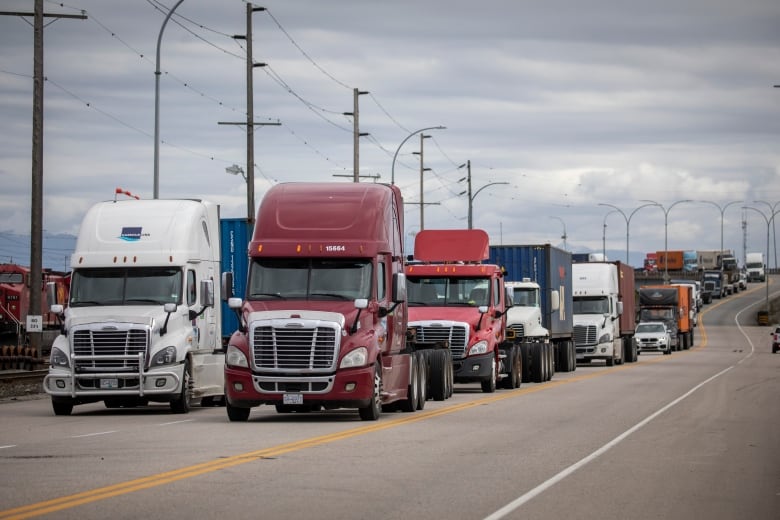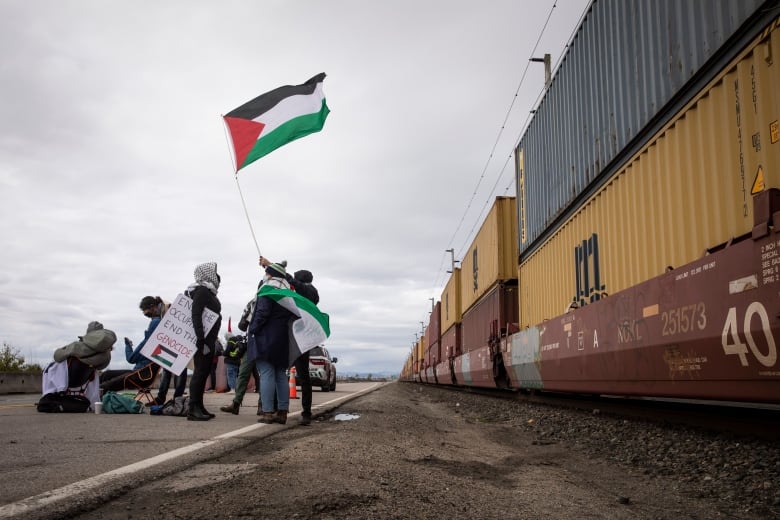A blockade by pro-Palestinian protesters at a major port terminal in Metro Vancouver disrupted operations for several hours before dispersing on Monday.
Terminal operator GCT Canada had said on Monday morning that “illegal protesters’ actions are causing an unsafe situation” as truckers that tried to access the Deltaport facility were being held on the Roberts Bank causeway for several hours.
GCT spokesman Marko Dekovic had said the company was not given advance notice of the blockade, and did not know why Deltaport was targeted.
The Delta Police Department said its officers were at the scene “liaising” with protesters earlier Monday.

Protesters are calling the event “People’s Picket for Palestine” and said in a statement the demonstration was being co-ordinated with protests around the world aimed at blocking “major choke points in the economy” to cause “the most economic impact.”
“I am here today to say that the Canadian government and Canadian businesses, like GCT Deltaport, must take a stand and refuse to do business with Israel,” protester Atiya Jaffar said in a statement.
The Port of Vancouver is the largest port in Canada, and GCT Deltaport is the country’s largest container terminal, with capacity to handle 2.4 million standard containers every year.
Dekovic said Monday’s blockade was at one point “severely impacting” the terminal’s ability to operate but declined to discuss the port’s recovery capabilities “as it may give the protesters other ideas on how to negatively impact the operation.”
The protest contingent said more than 100 demonstrators participated in the blockade.
Video from the scene shows protesters waving Palestinian flags and chanting as traffic is halted.
Trade and transport infrastructure experts say while the disruption from such a blockade is inconvenient for truckers stuck at the terminal gates, it is unlikely to cause serious backlogs.
“The cargo in containers is not so perishable or valuable that a day’s delay makes a difference,” said Simon Fraser University professor of urban studies Peter Hall. “A blockage needs to go on for a while before it has appreciable impact.”

Werner Antweiler, a professor of economics at UBC’s Sauder School of Business, agreed the impact of such a blockade should be limited, even though about 3,500 trucks move in and out of Deltaport every day, according to a 2021 study.
But Antweiler said a bigger question may revolve around the possibility of similar disruptions from protest blockades in the future.
“Some provinces such as Alberta have adopted laws to protect critical infrastructure. B.C. hasn’t,” he said in a written response.


